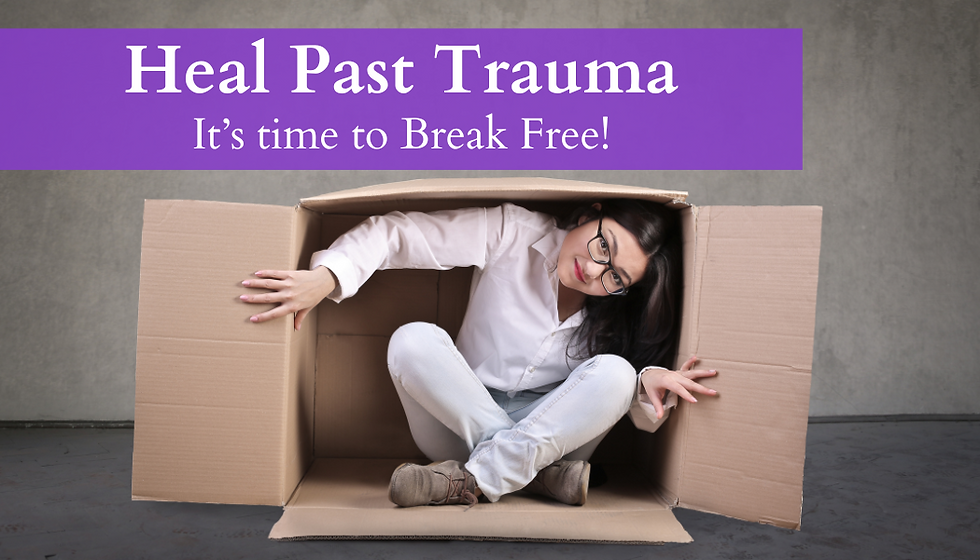Unlocking Calm: How Therapy Enhances Decision-Making for High Performers and Entrepreneurs
- Dr. Soto

- Aug 26, 2025
- 4 min read
In today's fast-paced world, where decisions can significantly impact outcomes, staying calm is crucial. For professionals like doctors, CEOs, and entrepreneurs, the pressure to make quick and effective decisions can often lead to stress and hasty choices. This heightened stress can cloud judgment and impair performance. Therapy offers transformative tools and strategies that can enhance decision-making processes in this high-stress environment.
Therapy is not solely for those facing crises; it serves as a valuable resource for high achievers looking to improve their mental clarity and emotional resilience. In this article, we explore how therapy can reduce reactivity and elevate decision-making for high performers and entrepreneurs.
Understanding Reactivity in Decision-Making
Reactivity in decision-making is when individuals respond impulsively to situations without considering possible outcomes. High achievers may quickly make snap judgments or emotionally driven choices that do not align with their long-term goals.
For instance, a CEO might decide to dismiss a team member after a single mistake without reviewing their overall performance. Such impulsive decisions can have lasting negative effects on the organization and morale.
Therapy provides a supportive space where individuals can explore their emotions and triggers, cultivating healthier responses and improving overall decision-making.
The Role of Therapy in Enhancing Emotional Intelligence
Emotional intelligence (EI) involves recognizing, understanding, and managing one’s emotions and being aware of the emotions of others. In fast-moving environments, EI can be vital for effective leadership and teamwork.
Therapy can enhance EI by offering valuable tools for self-reflection and emotional regulation. For example, through cognitive behavioral therapy (CBT), individuals learn to identify emotional patterns and how these responses affect their decisions. Research suggests that individuals with higher EI are 60% more likely to succeed in leadership roles.
Cultivating Mindfulness for Better Decision-Making
Mindfulness encourages individuals to stay present and engage fully with the moment. For high performers, incorporating mindfulness routines can reduce reactivity and improve focus.
Therapy often includes mindfulness training that enhances awareness of thoughts and feelings. For example, mindfulness practices help individuals pause before reacting to stress, enabling thoughtful decision-making. Studies have shown that mindfulness can reduce instances of snap judgments by up to 30%, leading to better outcomes in both personal and professional settings.

Building Resilience Through Therapy
Resilience is the capacity to recover from setbacks and adjust to difficult circumstances. High performers often encounter pressures that can lead to burnout, making resilience essential.
Therapy can enhance resilience by equipping individuals with effective coping strategies. For example, entrepreneurs facing failed ventures can learn to reframe challenges as growth opportunities. A study found that resilient leaders are 45% more likely to maintain high performance under pressure, showcasing the impact of therapy on future decision-making capabilities.
The Importance of Self-Care in Decision-Making
Self-care is often neglected in high-pressure professions, yet it is vital for sustaining mental clarity and emotional well-being. Therapy emphasizes the need for self-care practices, encouraging individuals to prioritize their health.
When high performers regularly engage in self-care, they are more likely to make thoughtful, strategic decisions. For instance, CEOs who practice regular exercise and mindfulness report a 25% increase in decision-making clarity.
Developing a Support System Through Therapy
Therapy can facilitate the development of a supportive community. Engaging in therapy can encourage individuals to connect with others who face similar challenges and experiences.
This community can provide new perspectives and insights that enhance decision-making. By discussing their challenges with peers or therapists, high achievers can gain clarity and confidence in their choices. Research shows that individuals with robust support networks are 40% more likely to feel satisfied with their decision-making processes.
Practical Techniques for Reducing Reactivity
Therapy offers practical techniques for high performers to reduce reactivity. A few of these methods include:
Cognitive Behavioral Techniques: Use these to identify and challenge negative thought patterns that spur impulsive decisions. For instance, recognizing overly critical thoughts can help shift to a more balanced perspective.
Journaling: Writing thoughts and feelings can clarify emotions and help individuals process situations before acting. Research has shown that journaling can improve emotional regulation by up to 60%.
The Long-Term Benefits of Therapy for High Performers
The benefits of therapy extend far beyond immediate decision-making improvements. Over time, individuals who engage in therapy often enjoy enhanced well-being, increased job satisfaction, and stronger relationships.
Investing in mental health allows high performers to adopt a balanced approach to their personal and work lives. This holistic improvement can facilitate sustained success and fulfillment in their careers.
Embracing Therapy for a Confident Future
In a world full of pressure and stress, therapy is a valuable tool for enhancing decision-making. By reducing reactivity, improving emotional intelligence, and building resilience, therapy empowers professionals to navigate challenges with greater clarity and assurance.
For high performers striving to refine their decision-making processes, embracing therapy can foster a more calm and thoughtful approach to both work and life. The journey toward improved mental health and decision-making is not only beneficial; it is crucial for long-term success and overall well-being.

Schedule your free consultation today. Let us walk this path of healing together, celebrating each moment of growth and self-love along the way.






